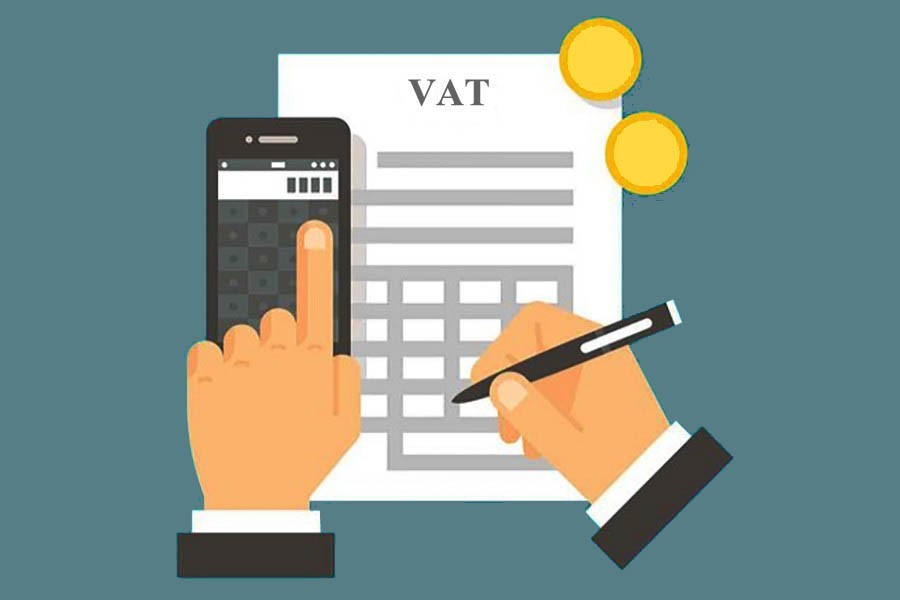The tax authorities will be doing a great favour to the poor consumers if they scrap the new value added tax (VAT) calculation method, introduced under an order issued on July 23 last.
The revised calculation method might help the National Board of Revenue (NBR) to raise its revenue earnings by a very thin margin (0.38 per cent). But the consumers, it seems, would have to pay far more than that amount from their own pockets.
Soon after issuance of the order, the Bangladesh Association of Pharmaceutical Industry (BAPI) wrote to the NBR claiming that the new calculation method would add to their VAT burden. The association suggested an alternative calculation method that, according to it, would keep the VAT amount at the current level.
The new VAT calculation method does not anyway affect the prices of medicines at the consumers' level. But because of a slight downward revision of price of medicines at the production level, the overall VAT earning for the NBR would go up by around 0.38 per cent.
Since the pharmaceutical companies legally cannot pass the increased amount of VAT on to the consumers, they have written to the NBR for remedial action.
The latest NBR order on revised VAT calculation concerning locally produced medicines has brought to the fore some facts that the general consumers are not aware of.
The consumers are in fact paying Tk 133.40 for a pharmaceutical product having a trade price of Tk 100 at the production stage. The price of certain medicine at the retail level includes the commission that the pharmaceutical companies pay to the chemists (pharmacies) and VAT imposed on trade price at production stage and also on the commission amount.
For a medicine valued at TK 100 at the producers' level, Tk 15 is added as VAT. The pharmaceutical companies pay 16 per cent commission to chemists (pharmacies) and that is added to the price of medicines. Then 2.4 per cent VAT on chemists' commission is charged and added to the maximum retail price of the medicines.
One can well raise questions about the justification of passing the chemists' commission and the VAT levied on the same on to the consumers.
The consumers have an aggrieved feeling that the pharmaceutical companies in recent times have been increasing the prices of medicines very frequently. The drug manufacturers, however, do defend the hike in medicine prices citing a number of reasons, but consumers find those hardly convincing.
The prices of a few medicines have almost doubled over the past four to five years. Barring some 'essential drugs', the government is found uninterested in monitoring and controlling the prices of hundreds of generic medicines produced in the country.
In the absence of any regulatory control, the pharmaceutical companies, many allege, have been fixing prices of medicines the way they like. The government and the pharmaceutical people are bothered least by the fact that poor and low-income people also have to buy medicines. The latter are required to bear more than 60 per cent of annual medical expenses from their own pockets. If approached, the drug manufacturers would claim that medicines in Bangladesh are less expensive than many countries in the world.
Bangladesh does also enjoy certain exemptions under the WTO's trade-related aspects of intellectual property rights (TRIPs) in areas of pharmaceutical production. But much of its benefits, unfortunately, are not being passed on to the general consumers in Bangladesh.
Though volumes have been said and written about the unabated rise in the prices of medicines in the country, the government continues to be indifferent.
There is no denying that the Bangladesh pharmaceutical industry has achieved enviable success. Starting from almost nothing back in early eighties, it is now meeting more than 90 per cent of local requirements. Some leading manufacturers have also entered the global market.
However, achieving such success would have been impossible without policy support coming from the government and patronage of the local consumers. The Drug Policy of 1982, basically, created all the opportunities for domestic pharmaceutical industry to grow. So, the industry is indebted to the people. For without their support, the industry could not have achieved such a remarkable success.
It is natural for any industry to eye profit. Yet medicines are not like other consumer goods. People do not buy medicines to appease their likings. They go to drug stores when they are sick. And a large segment of the buyers of medicines are poor. The pharmaceutical companies do need to keep this in mind while fixing prices of their medicines.
There should not be any categorisation of drugs and medicines such as 'essential' or 'non-essential'. Some drugs can be labelled as 'life-saving' and a few as over-the-counter (OTC) items. All other drugs and medicines need to be treated essential.
The tax authorities should also be sympathetic towards people suffering from different types of diseases. A VAT rate of 15 per cent on medicines appears to be too high. Even some other items or services do enjoy lower VAT rates.
The passing of chemists' commission and VAT on it onto the consumers does not appear justified. Those should be borne by the pharmaceutical companies.
In fact, many hidden costs in relation to products and services rather unfairly are often passed on to consumers. The government, manufacturers and service providers need to be transparent in this particular area to help consumers make their choice.


